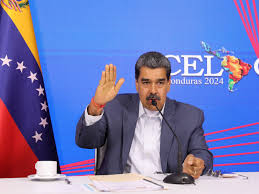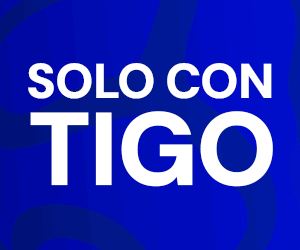Honduras has recalled its charge d’affaires while Venezuela plans to close its diplomatic offices in Ecuador in protest.
Two Latin American countries — Venezuela and Honduras — announced diplomatic actions to signal displeasure at a recent police raid at Mexico’s embassy in Quito, Ecuador.
The announcements came on Tuesday as countries throughout the region gathered for a virtual summit of the Community of Latin American and Caribbean States (CELAC).
On the social media platform X, Honduras’s Foreign Relations Minister Enrique Reina revealed that his country had recalled its charge d’affaires from Ecuador to consult on the police raid.
Reina said the government of President Xiomara Castro hoped to send “a clear message to promote respect for international law”. He added that the storming of the embassy “should not become a disastrous precedent in the international system and that these events should not be repeated”.
Venezuela, meanwhile, announced plans to close its embassy and consulates in Ecuador, likewise in response to the raid. Its Ministry of Communication and Information (MIPPCI) said it would only reverse its decision once “international law is expressly restored in Ecuador”.
Tuesday’s actions are the latest show of support for Mexico after experts said Ecuador violated international law by sending law enforcement onto embassy grounds.
The aim was to arrest former Ecuadorian Vice President Jorge Glas, who had been twice convicted on corruption-related charges.
He had been sheltering in the Mexican embassy since December to avoid arrest and imprisonment.
On April 5, police officers scaled the embassy’s walls and stormed the building in a successful attempt to detain Glas.
But embassies and consulates are protected under international law from unauthorized entry by local law enforcement, and video footage of the embassy raid showed police officers at various points pointing a gun at a senior diplomat and pushing him to the ground.
Mexico has since filed a complaint at the International Court of Justice calling for Ecuador to be expelled from the United Nations, pending an apology for the embassy incident.
It also severed its diplomatic relations with Ecuador, recalling its embassy staff from the country.
Reina, the Honduran foreign minister, offered his government’s backing to Mexico in his statement on Tuesday.
“We will take the necessary steps to support Mexico’s actions before the UN and the International Court of Justice,” Reina wrote.
Speaking at CELAC’s virtual conference on Tuesday, Venezuelan President Nicolas Maduro also echoed Mexico’s call for an apology.
He referred to the police raid as an “act of barbarism” and expressed his desire to see Glas transferred to Mexican custody. In the hours prior to his arrest, Mexico had offered Glas political asylum within its borders.
Glas is currently in prison in Guayaquil, Ecuador, where he undertook a hunger strike to protest against his arrest.
Ecuador has defended the embassy raid on the grounds of pursuing justice and upholding its national security.
President Daniel Noboa, for instance, responded to the international outcry by releasing a statement that said, “I have made exceptional decisions to protect national security, the rule of law and the dignity of a people who reject any type of impunity for criminals, delinquents, corrupt people or narco-terrorists.”
But last week, a three-member tribunal in Ecuador declared the embassy raid arbitrary and illegal. Still, the panel of judges nevertheless upheld Glas’s imprisonment.
“This tribunal cannot modify the sentence,” one of the judges said in the ruling. (https://www.aljazeera.com/news/2024/4/16/venezuela-shuts-diplomatic-office-in-ecuador-to-protest-mexico-embassy-raid)





































